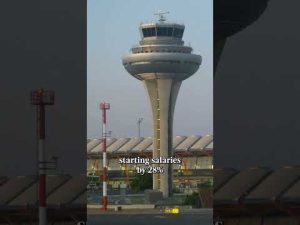When discussing the events in Ukraine, it’s essential to understand not just the immediate conflict but the broader implications of Vladimir Putin’s ambitions. On February 24, 2022, the world was thrust back into the grim realities of war as Russian tanks crossed into Ukraine, marking the first major land invasion in Europe since World War II. Putin, with his usual double-speak, dubbed this as a “special military operation,” claiming it was necessary to protect Russian-speaking citizens from a supposed neo-Nazi regime in Kyiv. However, the brutal reality on the ground tells a different story—one filled with indiscriminate destruction and a terrifying atmosphere of fear for civilians.
The devastation wrought by Russian forces has been staggering. Civilian lives are caught in the crossfire, with entire families displaced and cities reduced to rubble. As citizens in places like Lviv face nightly drone and missile threats, one can’t help but ask: why does Russia indiscriminately target civilian areas? The answer is twofold—either they are simply inept with their weaponry, or they aim to instill fear in the hearts of the Ukrainian populace. The uncertainty of where the next strike will land keeps lives in a state of dread, where even a “safe zone” in the city can swiftly become a target.
In the wake of such brutality, Ukraine’s response is one of remarkable resilience. Ordinary citizens, who once led mundane lives as shopkeepers or teachers, are now defending their homeland. This national mobilization reflects an almost instinctual drive to protect their sovereignty against an overreaching aggressor. Many families have been touched by tragedy, as combatants are reduced to missing persons, and the burden of sacrifice weighs heavily on the collective spirit of the nation.
Yet, what does Putin really want from this conflict? The Kremlin has made demands for Ukrainian neutrality, demilitarization, and the return of lands like Crimea and the Donbass. However, on a deeper level, Putin’s actions are motivated by an ideology rooted in Russian imperialism—viewing Ukraine not merely as a neighboring country but as an extension of Russian lands destined to be under Moscow’s control. In this worldview, the independence and existence of Ukraine threaten the very fabric of Russian identity.
The specter of Alexander Dugin looms large in shaping this narrative. Described as “Putin’s brain,” his philosophies promote the idea of a resurgent Russian Empire, one where Ukraine’s very existence is viewed as an affront to Russia’s security. He argues that the mere existence of a sovereign Ukraine stands contrary to Russian interests, thus justifying aggressive military actions. This ideology also feeds into a broader anti-Western sentiment, where the West is framed as a moral and ideological adversary, further fueling Putin’s alleged mission.
As the war continues, the situation remains dire. Nightly drone strikes in Ukraine’s cities highlight an ongoing struggle—not just for territory but for the fundamental right to exist free from tyranny. The realities of modern warfare have exposed the stark differences in governance and ideology, contrasting America’s commitment to democracy with Russia’s retreat into autocratic nostalgia. While citizens in Ukraine face the horrors of war head-on, those of us in the West must recognize the fragility of our freedoms and the importance of supporting those who are fighting to preserve theirs. It’s a reminder of how fortunate we are and of the sharp challenges that remain for those whose independence is under relentless threat.







